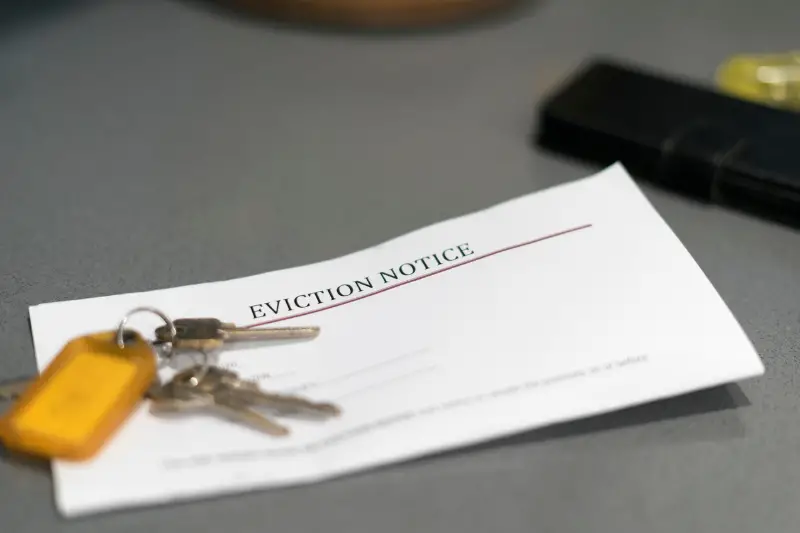I Lost My Job, Can I Be Evicted?
In most cases, you cannot simply be evicted because you have lost your job. If you are being forced out of a lease agreement simply because you lost your job, contact a professional attorney immediately to seek counsel and know your rights.
So, can I be evicted from my home if I lost my job? A tenant can be evicted from a rental property for one of three reasons: nonpayment of rent, material breach of the lease, and serious nuisance. If a tenant loses his job, he is likely to fall behind on rent But the tenant cannot be evicted for nonpayment of rent if he has no income or little income.
Instead, even though the lease requires the tenant to pay rent, the tenant will likely be allowed to catch up on missed rent by paying it in installments, or off and on overtime.
If you think your situation may fall under one of these scenarios, consult with an attorney immediately to better understand your rights and obligations as a tenant.
Reasons You May Be Evicted
There are three primary reasons a tenant may be evicted. Let’s take a closer look at these circumstances.
Material Breach
 But the landlord can evict a tenant for material breach of the lease if he falls behind in rent.
But the landlord can evict a tenant for material breach of the lease if he falls behind in rent.
For example, if a tenant loses his job and also falls behind in rent for several months, then misses one or more rent payments in the future, the landlord can evict them for material breach of the lease.
But when a tenant falls behind in rent and misses one or more additional rent payments after an eviction notice was served for nonpayment of past due rent, his failure to pay is considered “willful”.
This entitles the landlord to serve another eviction notice, called a “three-day notice to pay rent or quit”. If the tenant then misses one or more future rent payments, he is committing “willful failure to pay rent,” and can be evicted after service of a three-day notice.
In addition to eviction for material breach of the lease, a tenant cannot pay rent late if he causes or creates a “substantial interference” with the landlord’s interests. This kind of eviction occurs when a tenant has become so disorderly that he is disturbing other tenants, neighbors, and even his family members. The legal term for this type of eviction is “nuisance”.
The same standards apply to an eviction based on both material breach of the lease and nuisance. The tenant has to engage in either behavior or both, so long that landlord can show that his ability to use and enjoy his property has been impaired.
Serious Nuisance
Most jurisdictions allow the eviction of a tenant who is engaged in serious criminal activity against other tenants, other people on the rental property, or even family members living there.
For example, a tenant can be evicted if she is manufacturing or selling drugs on the rental property. Sometimes, this type of eviction claim arises from a tenant’s failure to control a house guest who commits serious crimes while visiting the rental property.
A landlord must first allow the tenant to correct his behavior before going forward with an eviction based on that behavior. For example, a landlord can evict a tenant for drug manufacturing on the rental property if he serves an eviction notice and gives the tenant 10 days to fix the problem.
If the problem is not fixed at the end of those 10 days, then the landlord can file eviction papers in court.
Circumstances That Allow Landlords to Evict Tenants
There are three different scenarios in which a tenant can be evicted from their home due to losing their job or income:
- The lease agreement states that the tenant must maintain certain income levels during the term of the lease. If a tenant cannot provide proof of income at the time rent is due, the landlord may file an eviction action. The tenant must then pay back rent (including late fees) and seek to renegotiate the lease with the landlord.
- If a tenant fails to make payments on their rental unit, their credit score will suffer, which will make it almost impossible for them to find another place to live or receive home or car loans.
- The tenant was given adequate notice to pay the rent or move out within a certain timeframe but failed to do so. When this occurs, the landlord can file an eviction action against the tenant. If all of these conditions are met, then the court may issue an order allowing the landlord to remove the tenant and their belongings from the rental unit.
Talk with Your Landlord About Repayment Schedule
 If you have lost your job and cannot afford your apartment, you need to talk with your landlord about an affordable repayment plan.
If you have lost your job and cannot afford your apartment, you need to talk with your landlord about an affordable repayment plan.
\In the event that you and your landlord can agree on a reasonable payment schedule, then the eviction proceeding might be postponed until you catch up on missed rent payments.
If you cannot reach an agreement with your landlord, or if the rental contract does not provide for an alternative arrangement to catch up on missed rent payments, then you may have to leave the rental property.
However, if your landlord files an eviction lawsuit when you have no income or savings, the court might dismiss it.
If a judge determines that you can pay but refuse to do so for bad faith reasons, such as in an attempt to harass the landlord into canceling your lease, then you might end up with a judgment against you and eviction on your record.
What Happens When You Lose Your Job?
Most leases require the tenant to pay rent but will allow the tenant to catch up on missed payments over time. If the tenant falls several months behind on rent, they can be evicted for nonpayment of rent.
If the tenant misses one or more additional rent payments after an eviction notice is served for non-compliance with payment of the past due rent, their failure to pay is considered “willful”. This gives the landlord the option to serve a three-day notice demanding payment of rent or face eviction.
If the tenant fails to pay any additional installments on rent within three days of receiving this notice, they can be evicted for “willful failure to pay rent”. At this point, a judge may rule that a judgment can be left against the tenant and their eviction recorded on a public record.
If you lose your job unexpectedly and experience a sudden loss in income, the court may allow the eviction proceedings to be postponed until you get back on your feet. A reasonable payment plan may also satisfy the landlord and prevent eviction proceedings from moving forward.
However, if you refuse to pay any additional rent after receiving an eviction notice, the court may rule that a judgment can be left against you and that your eviction may be recorded on a public record.
Next Steps Following a Termination Notice
If you have received a termination notice or an eviction warning letter because of the late payment of rent, make sure that you take all necessary steps to get caught up on the missed payments by your next rent due date.
You should also consider contacting someone in your area that may be able to help you with financial assistance.
It is important to note that if your landlord decides to evict you, they must go through the correct legal process before your eviction can take place. If this happens to you, make sure that you understand all of the rules and deadlines for responding to the summons and complaint (or eviction warning letter).
For example, an agreement to rent a place to live is called a “lease”. A lease states that the person renting the property must pay rent for one month at a time. If some problem prevents the renter from paying their next month’s rent, the landlord can evict them. However, they must give the renter at least thirty days’ notice to leave.
Seek Legal Counsel
If you’re facing eviction, contact an attorney or legal aid office in your state right away. They will be able to help you with this issue. At the very least they should be able to give you specific information that applies to your situation.
The above is general legal information. Laws change frequently on topics such as this. You must receive advice from qualified counsel in your state before taking any action. No amount of general information can replace the advice from a professional.
If you or someone you know has lost their job and is facing an eviction, don’t hesitate to seek professional help. Many times there are small misconceptions or deceptions that can trip tenants up. You must know all of your options before accepting an eviction notice.








